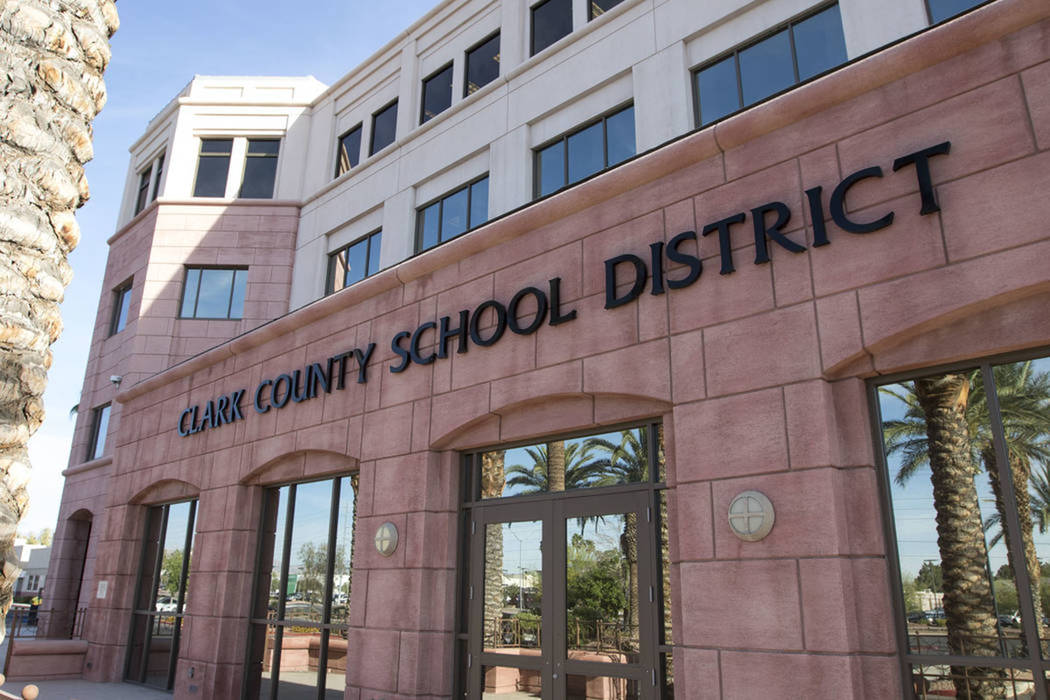COMMENTARY: ‘Restorative discipline’ in schools a pathway to a more peaceful community
In his Sept. 22 column, Victor Joecks referred to the Marjory Stoneman Douglas High School shooting and suggests restorative justice in the Clark County School District may increase violence on campus. We believe he mischaracterizes restorative justice, and we offer a different perspective.
Imagine this: Two high school students get into a fight. One girl, call her Natalie, heard that Keesha had slept with her boyfriend. Natalie told everyone Keesha was a whore, attacked her in the girls’ room and bloodied her nose. What do you do with these two girls?
Do we punish Natalie by sending her to in-school suspension? Expel her? Do we send Keesha to the school nurse or doctor if her injuries are severe? Do we cite both of them for fighting/affray, as often happens?
No, none of the above.
Why? Because punishment doesn’t teach Natalie or Keesha the self-control they need to become effective, productive members of the community. None of these options helps them understand how they harmed each other or calls on them to make things right. None helps them settle the underlying dispute, nor build trust and understanding. None helps them reintegrate into the school as contributing members.
None of these solutions responds to Keesha’s need for Natalie to understand and acknowledge the harm she has done and to compensate for that harm. Nor do they explore and address the factors that led to the fight or help them develop skills to resolve conflicts peacefully.
Rather, punishment may foster anger and change the focus from the harm they have done to resentment of teachers and school. In short, “punishment often has negative side effects and does little to teach self-discipline,” according to “The Little Book of Restorative Discipline for Schools” by Lorraine Stutzman Amstutz and Judy H. Mullet (2005).
In our experience with Clark County School District students, it is more effective to apply the principles of “restorative justice” or “restorative discipline,” a long-term, science-based approach to avoiding and resolving disputes. It teaches young people to become responsible for their own actions. It is not soft on the students. Rather, it calls on them to take difficult steps that many adults cannot accomplish.
The application of restorative justice in the district is through the use of neutral mediators, provided by the Clark County Neighborhood Justice Center’s Victim-Offender Mediation program. Here’s how.
Mediators meet individually with the offender and the victim in a dispute and their respective family members to explain the program and prepare the students to participate in the next steps. If both the students and their families agree, a joint meeting between the students is arranged. In the meeting, the students describe what happened that led to the conflict, how it affected them and what each student can do to make things better.
Based on this discussion, mediators help the students develop a written agreement describing steps each will take to make things right. The students’ family members are an essential part of this joint meeting.
Resolution of the conflict focuses on the harm done, not just the rules broken, and on the person harmed, who must be given a voice in the resolution. The focus is on the victim’s needs and the offender’s responsibility to repair the damage done.
These meetings of reconciliation have been going on in schools of the Clark County School District for the past 20 years. The students learn how to express their own needs, how to solve conflicts and how to build peaceful communities.
We encourage the school district to continue and expand on this program, which teaches our young people how to foster peaceful communities.
Dr. Barbara Strahl is a mediator, educator, guest lecturer for the University of North Carolina at Greensboro and senior secretary of the Nevada Mediation Group. Pat Sutherland is a mediator with the Clark County Neighborhood Justice Center and senior president of the Nevada Mediation Group. Ann Marshall is a member of Nevada Mediation Group and has served as a volunteer mediator at the Neighborhood Justice Center. They live in Las Vegas.

















